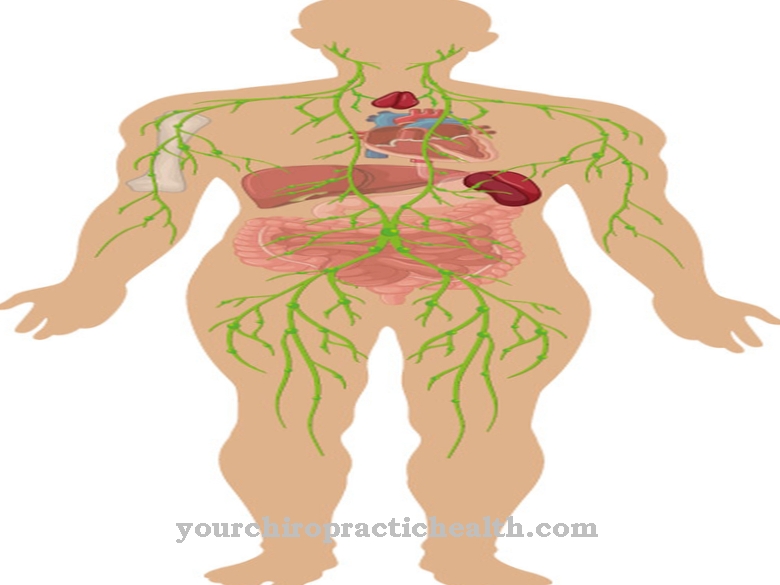In the Ciguatera fish poisoning it is a passive fish poisoning, which occurs most frequently worldwide. It occurs particularly through fish from the Pacific Ocean, Indian Ocean or the Caribbean.
What is ciguatera fish poisoning?

© ChiccoDodiFC - stock.adobe.com
Ciguatera fish poisoning is one of the passive poisonings. This means that the poisoning symptoms are caused indirectly by the fish.
These animals contain the nerve toxins maitotoxin and ciguatoxin, which enter the animal via the food chain. The fish consumed is itself non-toxic. Symptoms of poisoning can only be caused in the consumer when he ingests certain toxic substances through food. This type of fish poisoning therefore also includes the well-known poisoning with the muscle meat of the Japanese delicacy fugu.
Ciguatera fish poisoning is thus clearly differentiated from active fish poisoning, which is usually caused by a sting of a poisonous fish such as the stone fish or the stingray. The symptoms of ciguatera fish poisoning can drag on for many weeks, but they are not life threatening to a healthy adult.
causes
Ciguatera fish poisoning is due to the toxic substances maitotoxin and ciguatoxin. These are neurotoxins that enter the organism through eating fish. Because they are fat-soluble, they can be easily absorbed by the body.
Furthermore, they are resistant to heat, so that they are not destroyed by boiling and frying the fish. The fish that contain these poisons are inherently non-poisonous. The reasons for its toxicity can be found at the beginning of its food chain. Numerous microorganisms, which are also called dinoflagellates, live on the coral reefs. They contain the listed neurotoxins and serve as food for the fish.
The animals ingest them and do not feel anything of the poisoning themselves. The toxic effects for the human organism unfold on the dinner plate, causing ciguatera fish poisoning.
Symptoms, ailments & signs
The symptoms and complaints of Ciguatera fish poisoning are usually very characteristic and often point directly to the disease. Those affected primarily suffer from profuse sweating and continue to suffer from numbness or sensitivity disorders. It is not uncommon for a burning sensation on the tongue or even in the entire oral cavity, so that it is no longer possible to take food or liquids without further ado.
Those affected also suffer from fever or chills and feel dizzy. Ciguatera fish poisoning often leads to discomfort in the stomach or intestines, so that many people also suffer from diarrhea and nausea. If the Ciguatera fish poisoning is still left untreated, the muscles will cramp and the pain will be very severe.
The correct perception of temperatures is also significantly restricted by this poisoning. In general, those affected also suffer from a feeling of weakness and appear tired or exhausted. However, Ciguatera fish poisoning can be treated relatively well, so that there is usually no reduction in life expectancy. Furthermore, caffeine or alcohol can exacerbate the symptoms of Ciguatera fish poisoning.
Diagnosis & course
As with other poisonings, a reliable diagnosis of Ciguatera fish poisoning is often a challenge. It can usually be diagnosed using classic symptoms such as reversal of the sensation of warmth and cold, nausea and vomiting.
It is also important to record the patient's history. To do this, the doctor asks the person concerned which fish have been consumed and where the consumption took place. The responsible poison can usually only be detected with immense effort in special laboratories.
In most cases, the disease shows a favorable course and a good prognosis. Consequential damage is not to be expected and the survival rate is 99%. However, the symptoms of ciguatera fish poisoning can last for many weeks.
Ciguatoxins are among the most powerful and dangerous neurotoxins. The toxins cannot be recognized based on their taste, smell or texture, nor can they be destroyed by physical processes such as heating or freezing. For mild cases of poisoning in humans, 0.1 micrograms of toxin per kilogram of fish are sufficient. This alone can already be understood as a complication in avoiding such poisoning.
Complications
In mild cases of poisoning, nausea, diarrhea and vomiting occur a few hours after consumption. In sensitive people, however, the symptoms can appear much earlier and much more severely. In addition, further complications can be expected in particularly sensitive people.
For example, there is often a strong burning sensation in the oral mucosa and a sharp drop in body temperature in connection with a non-specific feeling of weakness. In the case of severe poisoning, complications in the form of long-term damage are also possible. In some patients, the unspecific feeling of weakness lasts for months.
In addition, those affected are less physically resilient and suffer from constant fatigue. Permanent damage to the nerves that transmit tactile and temperature stimuli to the brain is also possible. According to the current state of research, it can be assumed that the regular consumption of alcohol and caffeine intensifies chronic ciguatera and increases the body's reaction to renewed contact with the neurotoxin.
When should you go to the doctor?
There is no antidote to the toxins that cause Ciguatera fish poisoning. Nevertheless, if this disorder is suspected, a doctor should be consulted promptly so that the side effects of the poisoning can be treated optimally and complications can be prevented.
The risk only arises after the consumption of tropical fish, whereby, unlike with microbial contamination, it does not matter whether the fish was properly cooked, as the poison is heat-resistant. Anyone who observes symptoms such as profuse sweating, dizziness, nausea and vomiting, diarrhea, burning in the mouth or muscle cramps after consuming tropical fish should consult a doctor immediately.
This also applies if initially only a slight upset stomach is observed, but suddenly the temperature sensation is disturbed. After a Ciguatera fish poisoning, there is often a reversal of temperature perception. Warm water is then perceived as cold, for example, and vice versa. At this point at the latest, a doctor should be consulted immediately.
How dangerous the poisoning is also depends on the age, weight and general constitution of a patient. Some people just notice a slight discomfort. If you suspect Ciguatera fish poisoning, a doctor should be consulted as a precaution. The emergency doctor may have to be called in the event of severe progress.
Doctors & therapists in your area
Treatment & Therapy
Treatment for Ciguatera fish poisoning is primarily about relieving the symptoms of the poisoning. Since the disease is associated with frequent vomiting and diarrhea, fluids and electrolytes should be given to the person affected.
A functioning antidote, however, does not exist. Therefore, the causative poison cannot be combated, only symptomatic treatment can be carried out. Apart from the symptomatic treatment of this fish poisoning, acute therapy is possible. As part of this treatment, the person concerned receives an infusion with the sugary alcohol mannitol. This promotes the excretion of urine so that the organism excretes the poison more intensely.
If Ciguatera fish poisoning becomes life-threatening, plasma expanders can be given as an infusion to the patient. These solutions increase the plasma volume from the blood. If the ciguatera fish poisoning has only been in the organism for a short time, pumping out the stomach also makes sense.
Outlook & forecast
The prognosis for Ciguatera fish poisoning is favorable. Passive fish poisoning has to be distinguished from active fish poisoning in terms of its healing potential. Since the fish does not have a toxic effect on the human organism in its natural species, there is normally no serious health risk for the person concerned.
Adult people with a healthy immune system and no other illnesses suffer from symptoms of Ciguatera fish poisoning for a few weeks. During this time, the ingested poison is slowly removed from the body and excreted. Afterwards, however, the patient is considered cured and is permanently symptom-free.
Depending on the severity of the poisoning, the patient's healing path is shortened or lengthened. Since complaints such as exhaustion, tiredness and reduced performance often occur, the patient must take sufficient care of himself. For optimal healing, it is important that no other harmful substances are consumed. The body is busy dealing with the poisoning of the fish and should not face any further challenges.
Physical sequelae or persistent impairments have not been documented for Ciguatera fish poisoning. The survival of the person affected is not at risk despite the complaints. At most, the good prognosis can be worsened by the development of a mental illness such as an anxiety disorder due to the experiences.
Aftercare
One of the relatively common types of fish poisoning is ciguatera fish poisoning. This passive poisoning occurs preferentially on vacation through the consumption of non-toxic fish. The symptoms of poisoning are caused by toxins in the fish feed.
Since Ciguatera fish poisoning usually does not result in permanent consequential damage, follow-up care is in itself obsolete. However, it is still recommended because the associated complications can last for several weeks or even months. In this respect, ciguatera fish poisoning is to be taken seriously even if there is no danger to life and limb.
However, it should not be confused with another passive fish poisoning: the fatal poisoning by the Japanese puffer fish Fugu. Symptoms affecting the digestive tract will be over after a few days. However, with certain pre-existing conditions, persistent accompanying symptoms of Ciguatera fish poisoning can lead to follow-up measures.
Factors such as the severity of the ciguatera fish poisoning and the age of the person affected are decisive for the possible follow-up measures. If necessary, their previous illnesses are also relevant if they are subject to special observation.
In blood pressure patients, for example, a drop in blood pressure or a racing heart for weeks can lead to the need for further treatment measures. Concomitant symptoms such as persistent dizziness, muscle pain or cramps may require follow-up measures. The goal of treatment is to reduce the longer-lasting after-effects of Ciguatera fish poisoning. These can impair the ability to work. In severe cases, they diminish well-being for months.
prevention
Ciguatera fish poisoning can only be prevented to a limited extent, as the fish consumed do not themselves belong to the poisonous species or it is due to food manipulation. In addition, the poison is heat-resistant, which is why cooking or frying does not protect against poisoning. If other people are known to be poisoned, fish from the contaminated region should not be consumed. In addition, the likelihood of Ciguatera fish poisoning increases if severe storms or storms raged before the fish was caught.
You can do that yourself
Since the Ciguatera fish poisoning is caused by the consumption of non-toxic fish and the nerve toxins / neurotoxins that cause it, ciguatoxin and maitotoxin, cannot be destroyed by heating or any other preparation method, direct prevention is not possible unless the fish becomes whole deleted from the menu. If, however, cases of Ciguatera poisoning become known in the region, it is advisable to abstain from regionally caught fish.
If, in addition to unspecific symptoms such as vomiting and diarrhea, burning in the mouth and numbness occur in the face, hands and feet as well as in the mouth, these specific symptoms may indicate Ciguatera poisoning after a fish meal. After recognizing the symptoms, the most important self-help measure is self-initiated vomiting. If not all toxins have been absorbed from the digestive tract by then, the remaining amount will be eliminated naturally and the effects of the poisoning will be slightly reduced.
It is important to take in sufficient fluids and electrolytes during the acute phase of diarrhea, which usually subsides after a day or two, in order to avoid secondary damage to health. To support the elimination of toxins from the body via the kidneys, the consumption of diuretic foods or spices can be helpful and possibly shorten the duration of the longer-lasting symptoms.

.jpg)
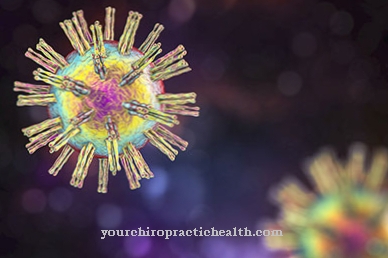
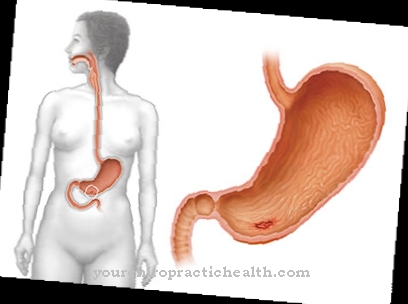

.jpg)


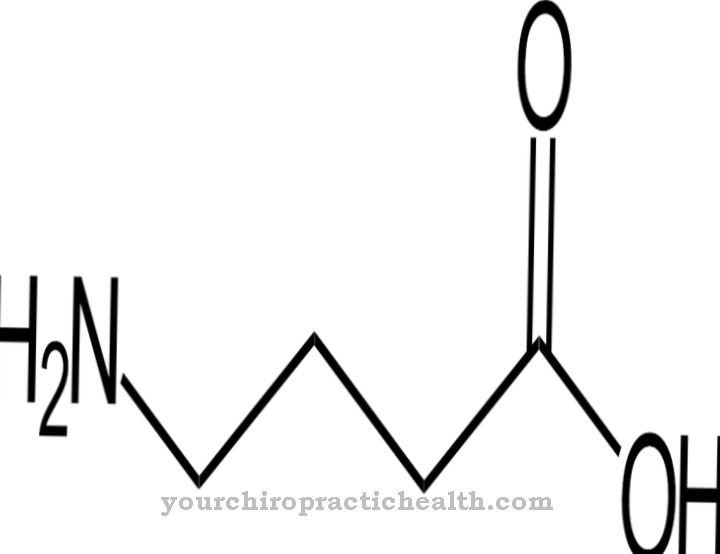
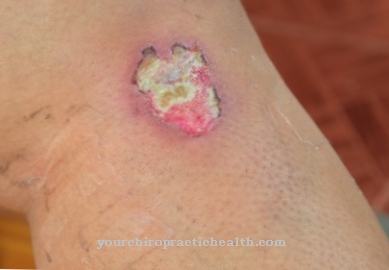


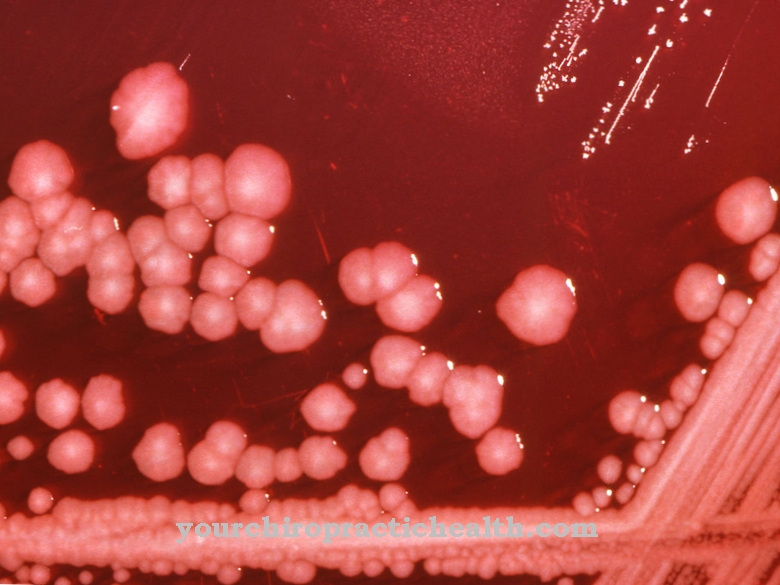

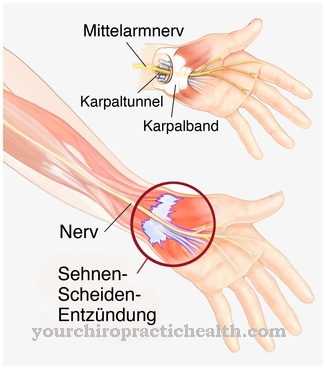







.jpg)

.jpg)



